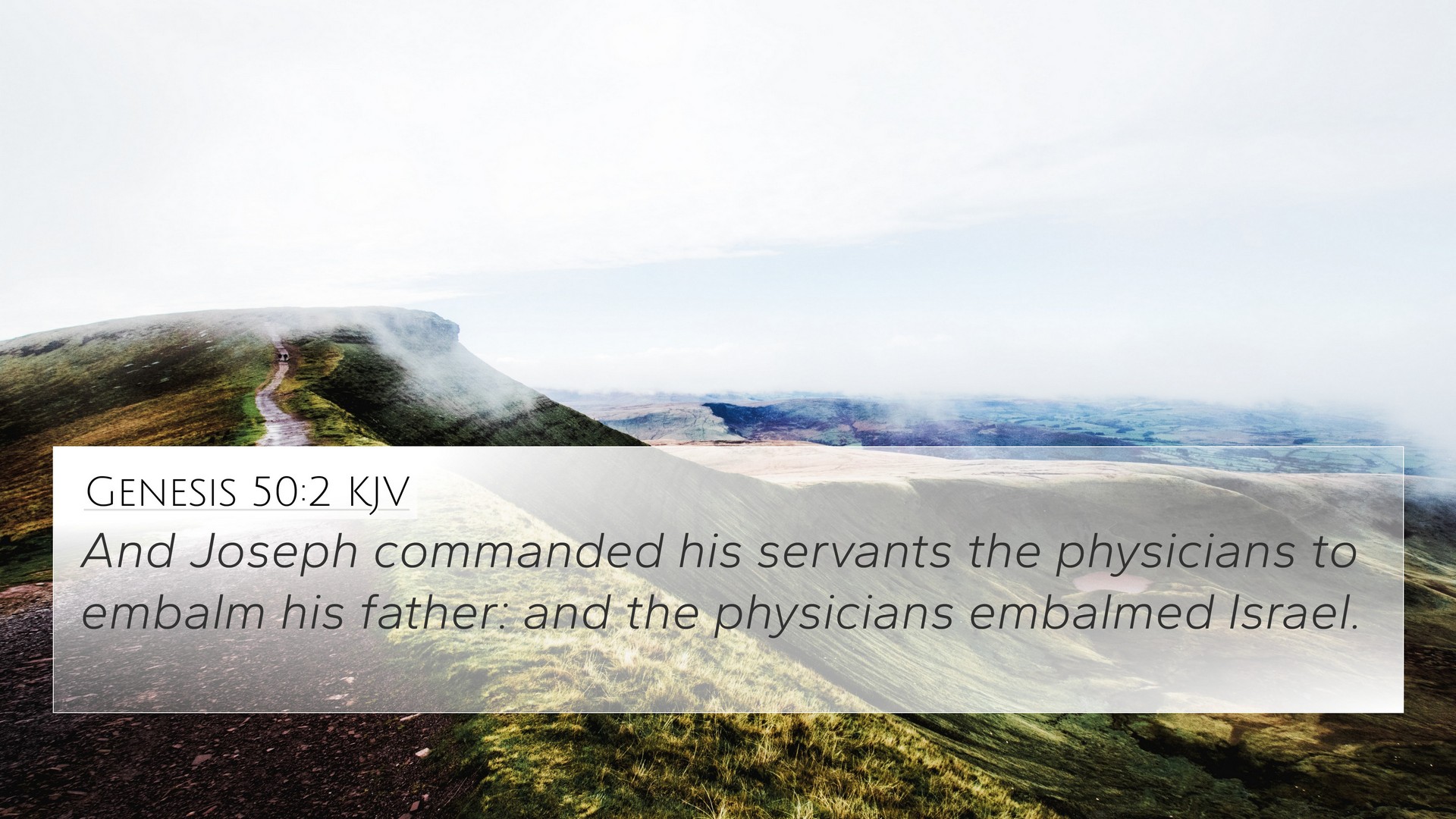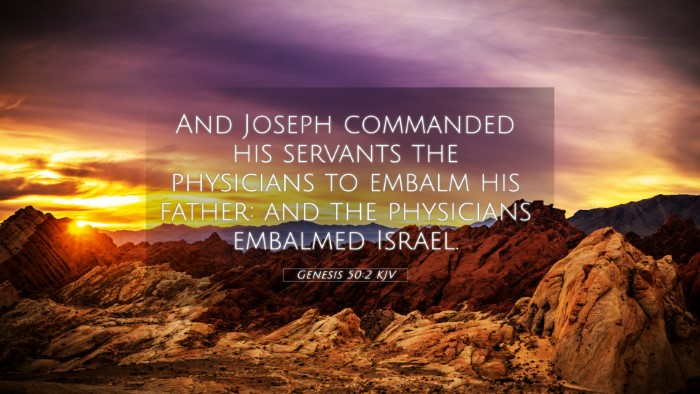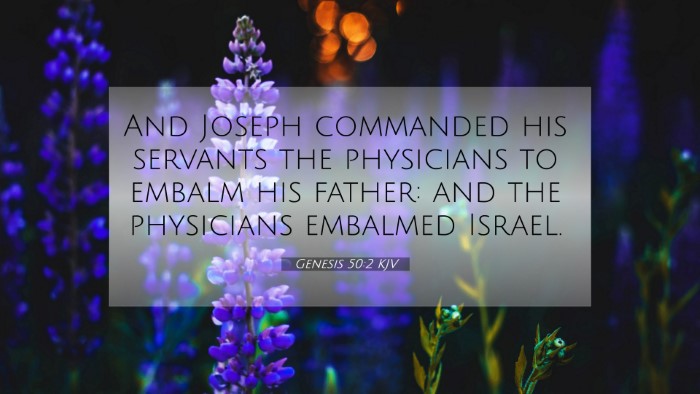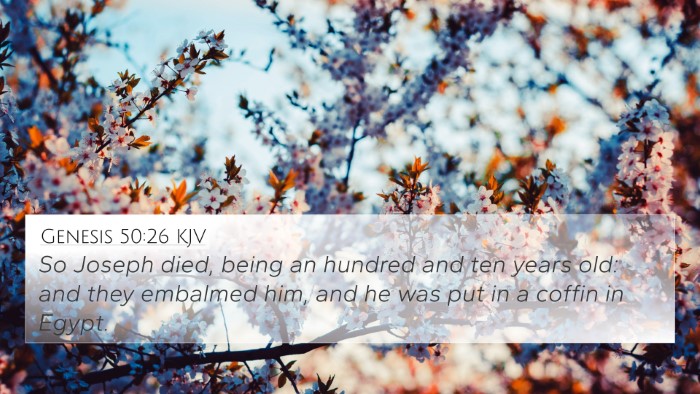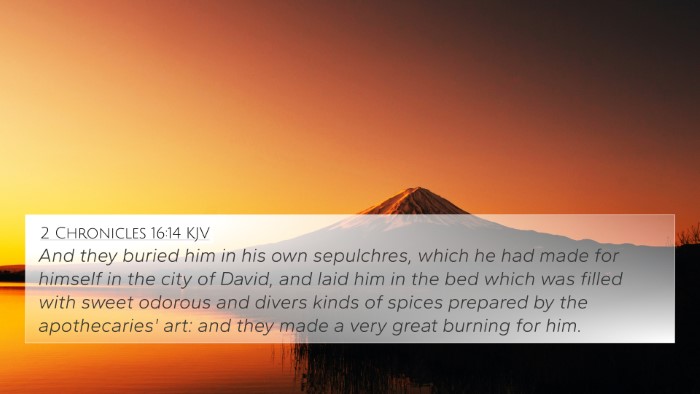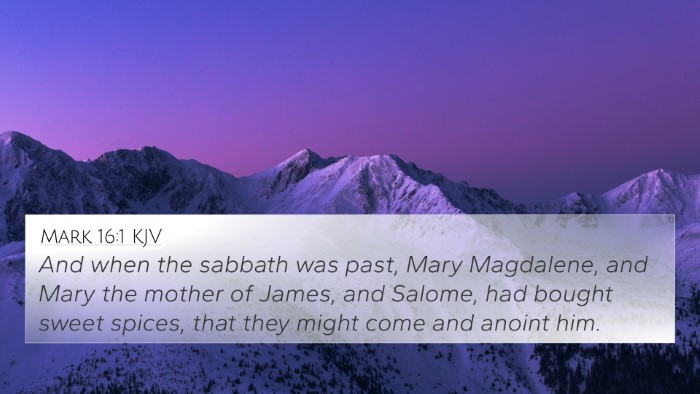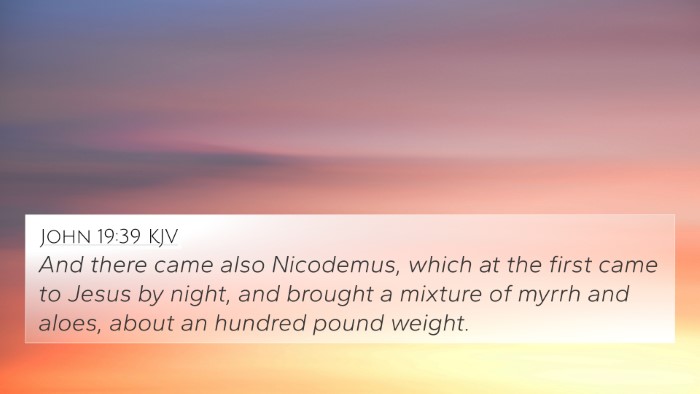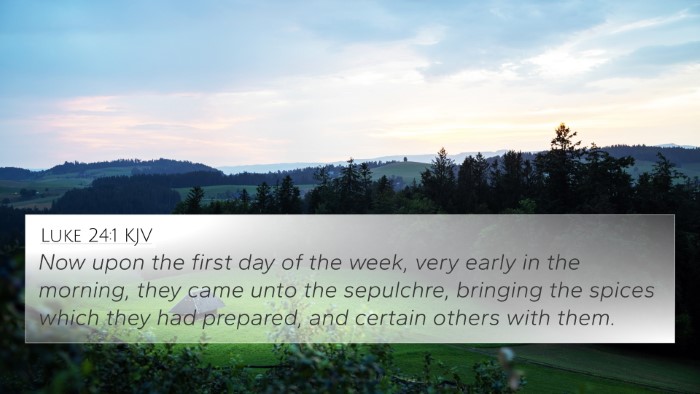Understanding Genesis 50:2
Genesis 50:2 states, "And Joseph commanded his servants the physicians to embalm his father: and the physicians embalmed Israel."
This verse occurs at the end of the book of Genesis, providing a significant moment as Joseph mourns the death of his father, Jacob (Israel). The act of embalming signifies respect and honor in the cultural context of ancient Egypt, where Joseph had risen to power.
Commentary Insights
When analyzing Genesis 50:2 through the insights of public domain commentaries, we can summarize the meanings and themes presented by authors such as Matthew Henry, Albert Barnes, and Adam Clarke.
Matthew Henry's Commentary
According to Matthew Henry, this verse emphasizes Joseph's care and respect for his father. The act of providing for the embalming signifies Joseph’s love and his position of authority. Henry suggests that Joseph's actions reveal his character, showcasing his devotion to familial ties despite his high status in a foreign land.
Albert Barnes' Commentary
Albert Barnes interprets the act of embalming as deeply rooted in Egyptian tradition and highlights its importance in ensuring a respectful burial. He discusses the significance of the physicians being called, illustrating Joseph's connection to both his heritage and the culture of Egypt. Barnes points out that this moment foreshadows the eventual exodus of the Israelites, marking a period of transition for the descendants of Jacob.
Adam Clarke's Commentary
Adam Clarke provides insight into the term “embalm” as a practice not commonly found in other cultures of that time. He suggests that Joseph’s request reflects a blend of Hebrew and Egyptian customs, illustrating the interplay of different cultural identities. Clarke underlines the emotional weight of this moment as Joseph grapples with his loss while honoring his father appropriately.
Significance and Themes
Genesis 50:2 is rich with themes of love, respect, and cultural interplay. It showcases how Joseph navigated his identity as an Israelite while holding a prominent position in Egyptian society. The passage also hints at the importance of family bonds, even amid shifts in geographical and cultural landscapes.
Cross-References
Several Bible verses connect to Genesis 50:2, enhancing our understanding of its themes and significance. Here are some notable cross-references:
- Genesis 47:29-30: This passage discusses Jacob's request to be buried in his homeland, highlighting familial duty.
- Genesis 50:1: This precedes the embalming, where Joseph expresses his grief over Jacob's death.
- Exodus 13:19: Joseph’s instructions to carry his bones out of Egypt reflect his desire to honor his father even after death.
- Genesis 48:1: Joseph’s earlier actions regarding his father emphasize the loving relationship between them.
- Psalm 30:5: This speaks to the themes of mourning and eventual joy, resonating with Joseph’s deep sorrow.
- John 11:35: "Jesus wept." reflects the emotional response to loss, drawing parallels to Joseph's mourning.
- Luke 7:13: Jesus’ empathy towards a grieving widow illustrates the shared human experience of sorrow.
Connections to Other Scriptures
Understanding Genesis 50:2 invites readers to delve into the broader narrative of the Bible through cross-referencing. Not only does it connect to the themes of mourning, familial bonds, and cultural practices, but it also serves as a narrative thread weaving through other significant moments in scripture.
As we study Genesis 50:2, we can utilize tools for Bible cross-referencing, examining how different verses interact with and support one another. This enriches our comprehension of the biblical text and reveals deeper theological insights regarding life, death, and the enduring nature of familial love.
